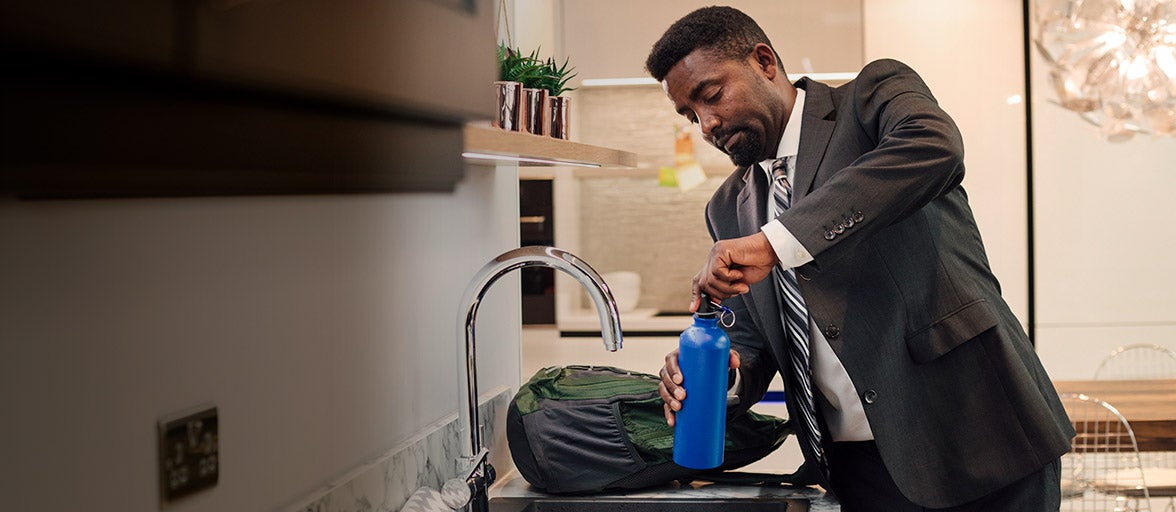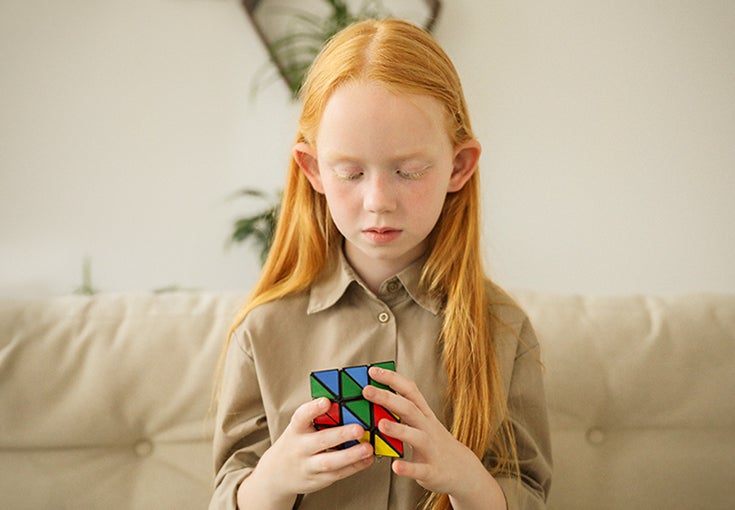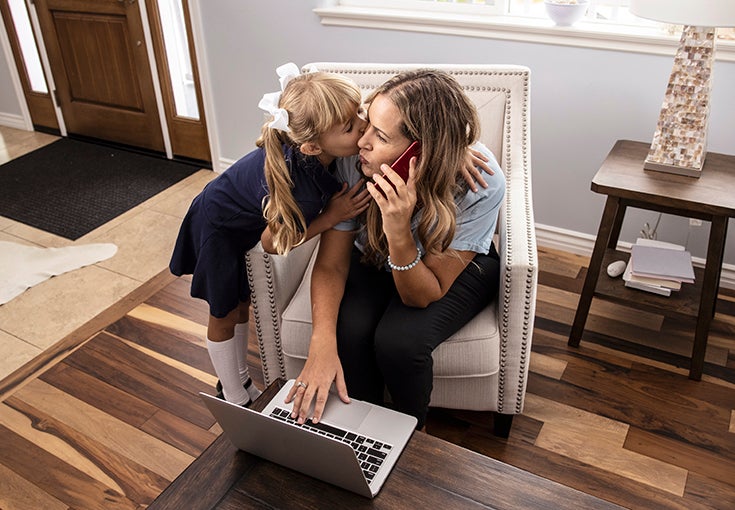There are so many simple ways we can be greener and more sustainable in our daily lives – from the products we consume to the way we wash our clothes.
The UK population throws away around 295 billion pieces of plastic every year, much of which is single-use and non-recyclable, so it is used for a limited time but takes hundreds of years to decompose in landfill. Plastic doesn’t completely degrade meaning that it becomes micro plastics that absorb toxins and continue to pollute the environment.
Making simple environmentally-friendly or eco-friendly swaps can make a huge difference to our environment. Here are 9 simple swaps that everyone can make to lead a more sustainable lifestyle.
Ditch the plastic water bottles
An easy sustainable swap is simply switching your disposable plastic bottles for a reusable alternative. In the UK we use 7.7 billion plastic bottles every year, a large proportion of which do not even make it to recycling. Plastics from items like plastic bottles that end up in our oceans kill around 1,000,000 sea creatures every year, so swap to a refillable stainless steel or glass bottle and you will be saving the environment and ensuring you stay hydrated too.
Swap disposable coffee cups for reusable
In the UK we dispose of 2.5 billion cups annually, and just 1 in 400 of those is recycled. Plastic coffee lids are not recyclable and neither are used paper cups, so opting for a reusable travel mug is a simple eco-friendly way of getting your caffeine hit. Many people choose environmentally-friendly reusables made of ceramic, glass, plastic or stainless steel. Several coffee shops will also give a discount if you use your own cup, so bringing your own is a double win.
Switch your fabric softener for dryer balls
Dryer balls can be made of rubber or wool, and work by absorbing moisture which cuts down on drying time, saving energy and money. They can replace dryer sheets and liquid fabric softener and last 2-4 years and for more than 1,000 loads, which of course minimises waste, unlike the common plastic bottles of fabric softener, which as single-use products, are bad for the environment and will most likely end up going to landfill.
Use alternatives to cling film
Switching out single-use cling film is one of the easiest things you can do. Cling film is a type of plastic, and is largely not recyclable. It is estimated that more than 1.2 billion metres of single-use cling film is used by British households every year. Greaseproof paper, foil and wax paper can all be used in place of cling film, and while they are recyclable, they are also single or limited use products. Instead, you could look to use beeswax wraps, 100% cotton cloths, reusable cloth bags or glass containers.
Swap your plastic bags for canvas shopping bags
Since October 2015, large retailers in England have been required by law to charge for all single use plastic carrier bags. This levy has seen usage drop 95% at supermarkets. Before the charge was introduced, more than 7.6 billion single-use carrier bags were given to customers in England’s supermarkets in 2014 - equivalent to around 140 bags per person. It takes around 1,000 years for a plastic bag to decompose, so making the switch to canvas will save not only money but also the environment.
Swap cotton balls or disposable wipes
Reusable makeup remover pads or cloths are an eco-friendly and cost-saving alternative to disposable cotton pads and wipes. As well as helping to reduce your environmental impact, washable pads can be reused up to 1,000 times, so will also save you money. Now readily available, the washable cloths are usually made from bamboo – which is hypoallergenic - and can go in the washing machine alongside your normal laundry instead of going to landfill.
Swap your liquid soap for bars
Buying package-free bars of soap over liquid soap pumps in single-use plastic bottles, is a very quick and easy sustainable swap you can make. Alternatively, you could use a glass bottle and refill from a refill station if you have one near you. Look out, as shampoo and conditioner bars for your hair are now also becoming increasingly popular.
Swap fast fashion for shopping second-hand
Buy second-hand or vintage clothing instead of fast fashion will have a huge impact on the environment. It takes 2,700 litres of water to make one new cotton t-shirt – but buying second-hand is impact free, and saves money for you too! Shopping second-hand is a great way of getting new clothes without damaging the environment.
Reusable straws – or ditch them altogether
The UK uses about 8.5 billion plastic straws per year, which make their way to landfill or into the sea. From July 2021, a ban on supplying drinks products with single-use plastic straws attached to the packaging came into force. Ditching the straw altogether or switching to steel, glass or rubber reusable straws is a great sustainable swap.
Sustainable living hub





